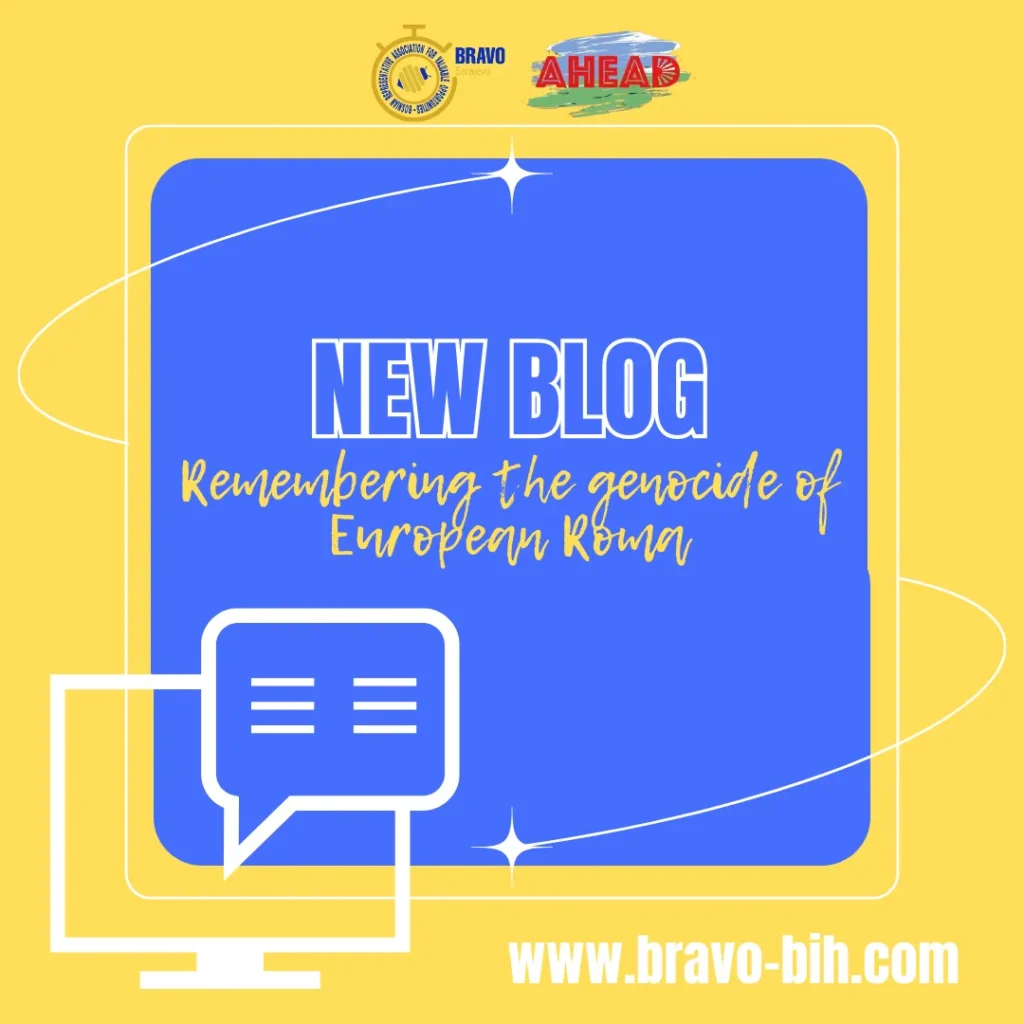
The Roma have endured several hardships and cruelties throughout history. Their suffering has gone unreported, and they have never truly had the chance to tell their stories. The genocide of the Roma people is often overshadowed by the Holocaust and it doesn’t get the adequate amount of attention as many people are not even familiar with it.
On the 2nd August the year of 1944, the camp where Roma and Sinti people were held at Auschwitz-Birkenau was liquidated. Thousands of men, women, and children of Roma or Sinti origin were tragically extinguished in the gas chambers, after which their remains were incinerated in trenches. The chapter of WWII history where ‘’Porajmos’’ aka the genocide of European Roma happened has not yet been fully acknowledged. Targeted by the Nazi regime, between 200,000 and 500,000 Roma and Sinti were systematically persecuted, imprisoned, and murdered in concentration camps.
Even today, after many years, have gone, the Roma community is still healing from the harm that was done. The stories of survivors and victims of the European Roma genocide are fading. Still, there is so much that we can do. By sharing their powerful stories and giving them a platform to speak, we ensure that future generations learn about the untold suffering of the Roma and develop empathy for those affected by prejudice and discrimination. The genocide of European Roma is a crime against humanity. Their tragic history and though present remind us that prejudice and discrimination can escalate into unspeakable violence.
Just by remembering the Roma genocide, we make a contribution to a more peaceful and supportive world where diversity is being celebrated while all forms of discrimination and hatred are rejected. Reflecting on the genocide of European Roma is an act of honoring those who suffered and whose innocent lives were taken away. The Genocide of European Roma teaches us that every single life is valuable and that hatred and evil should have no place in our life.
We say never again! And that applies to all humanity.
More about AHEAD project:
AHEAD project aims to promote between youngsters non–discrimination and to combat racism, xenophobia and other forms of intolerance against Roma and other Ethnic minorities (mostly migrants). Partners jointly work on innovative good practice approaches, human rights-based narratives, training, official regular meetings, and European awareness raising campaigns. The project promotes inclusion, tolerance, mutual and multicultural understanding, and fight Roma, ethnic minorities, and migrants in Europe through an innovative approach that combines research, training (national and international) on antidiscrimination and on hate speech, round tables, seminars, the exchange of good practices, meetings between different representatives, stakeholders, CSOs, and youth associations, and a massive dissemination campaign.
The project aims to contribute to strengthening the capacity building of young victims (part of minorities) and the protection of youngsters belonging to minorities by supporting them in capacity building and structuring new mechanisms in public consultations in partner’s country (replicable all over Europe) on the issue of nondiscrimination and fighting every form of hate speech against ethnic minorities, Roma and migrants.
AHEAD’s aim is to tackle hate speech (also online) and to combat discriminations that target minorities in 5 areas of civil rights: education, labor, housing, health, goods and services, through specific training offered to 200 participants and through an new approach that combines quantitative research, public meetings with stakeholders, and awareness raising campaign. After providing expertise, building competences, advocating and raising awareness among youth people, partners will support the mobilization of young victims and will focus on Capacity building actions for youth, in order to involve Youngsters in decision making and into new structured automatic mechanisms to empower their active participation on hate speech and antidiscrimination.
